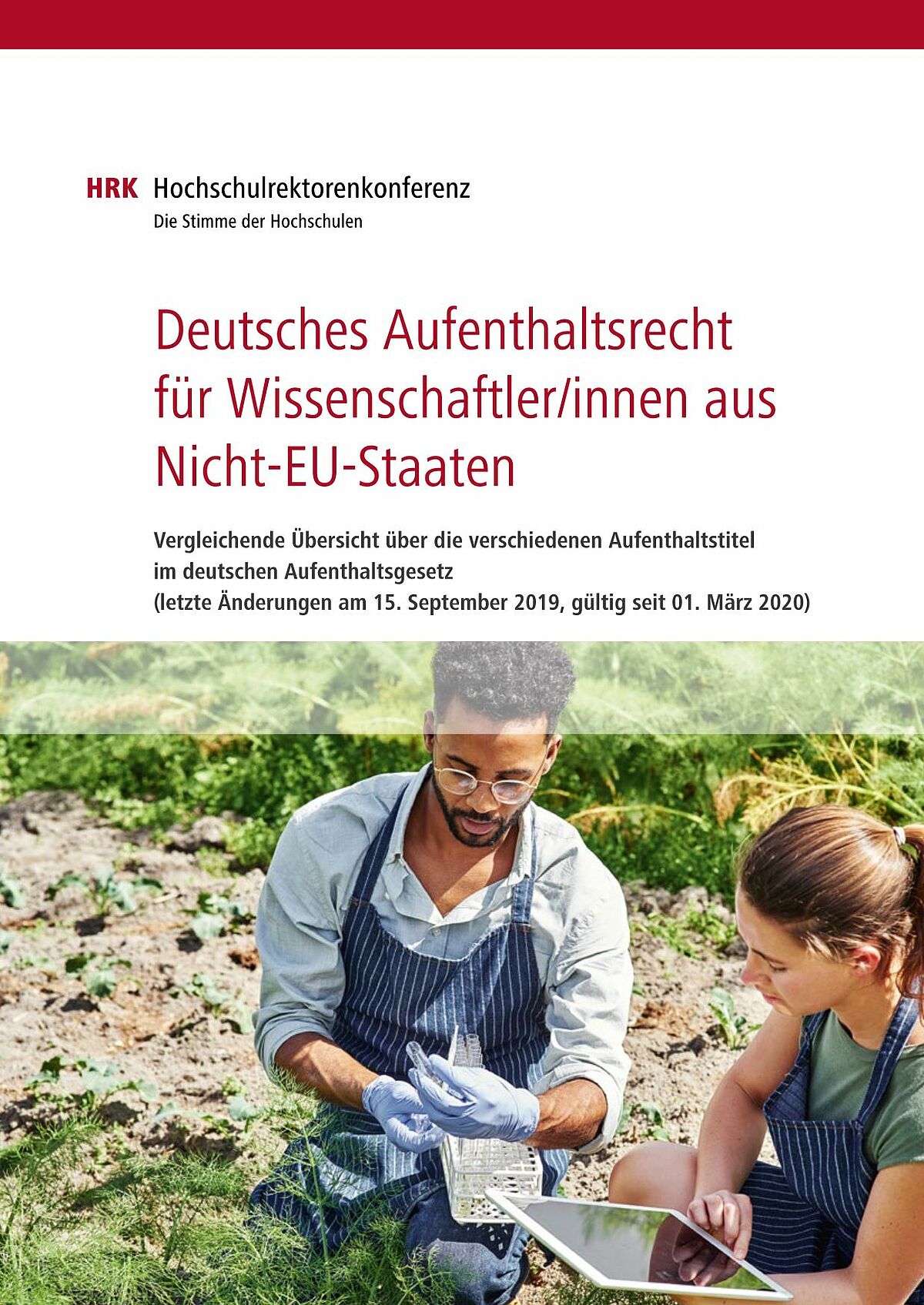Entry and Residence
Certain specific conditions need to be met for entering Germany and staying in the country. These generally include, ...
- that funding is secured for the duration of the stay,
- that the person has a residence permit (e.g. a visa) and
- that the person is pursuing a legitimate purpose of residence.
Different rules apply, depending on nationality. In this respect, a basic distinction is made between four groups of countries. Basic information for the individual groups is indicated below. For further information, please refer to the following websites as well:
- the Foreign Office: Visa-Navigator
- the Foreign Office: General information about visa applications
- the Foreign Office: Overview of visa requirements and exemptions for entering the Federal Republic of Germany
- EURAXESS Germany: Visa and entry
You do not need a visa to enter Germany.
If you intend to obtain an apartment, or if you wish to stay in Germany for longer than 3 months, then you and your accompanying family members need to register with the relevant local office.
You do not need a visa to enter Germany (§ 41(1) AufenthV).
After entry you need to apply to the Migration Office for a residence permit, ...
- ... if you wish to stay longer than 90 days and/ or
- ... if you wish to work in Germany.
If you wish to start working as soon as you arrive, then you should apply for an employment visa from the German overseas representative (embassy or consulate) in your country before entering Germany.
Whether you need a visa to enter Germany depends on the purpose of your planned stay (§ 41(2) AufenthV).
If you intend to study in Germany, ...
- ... you do not need a visa for entry.
- ... you must apply for a residence permit from the migration service after entry if you wish to stay longer than 90 days.
If you wish to work, research, look for a job or become self-employed, ...
- ... you will need a visa before entry.
You must therefore apply for the relevant visa from the German overseas representative (embassy or consulate) in your country before entering Germany.
Whether you need a visa to enter Germany depends on ...
- the length of your stay (more than or less than 90 days),
- your nationality and
- the purpose of your planned trip or stay.
Nationals from certain countries do not need a visa to enter Germany and for a stay of maximum 90 days within a period of 180 days. The overview of visa requirements and exemptions for entering the Federal Republic of Germany provided by the Foreign Office shows which countries are concerned.
- The visa entitles you to stay in the territory of the Federal Republic of Germany.
- The visa cannot be extended.
- You are not allowed to take up employment in this period.
Nationals from countries subject to visa requirements can apply for a Schengen visa to stay for a maximum of 90 days within a period of 180 days.
- The visa entitles you to stay in the entire Schengen area.
- The visa cannot be extended.
- The purpose of your stay cannot be changed.
The following conditions apply to the visa:
- Plausibility and verifiability of the reason for travel to Germany (e.g. scientific activity, research, doctorate)
- Funding of subsistence and travel costs from your own resources or earnings;
- The visa holder's willingness to leave the Schengen area again before expiry of the visa
- Presentation of a travel health insurance covering the entire Schengen area and valid for the entire period of stay, with a minimum cover of 30,000 euros.
Nationals from all countries in this group require a visa to enter Germany if they wish to stay in Germany for longer than 90 days.
- They need to apply for the visa in their home country or in the country where they are staying.
- The Visa-Navigator operated by the Foreign Office provides information about the general conditions and next steps.
You need to apply for a residence permit from the migration office after arrival.
Residence permit for (PhD) students and scientists from non-EU states

A good overview of the different residence permits for (doctorate) students and scientists from non-EU states is provided by the leaflet issued by the German Rectors’ Conference (HRK).
General requirements for a visa for (doctorate) studies
- Passport
- Biometric passport photograph
- Completed application form
- Evidence that your subsistence is secured (e.g. by a grant)
- Evidence of the university entrance qualification
- Admission to doctorate or to the doctoral programme (or letter of invitation from the supervising professor)
General requirements for a visa for scientific purposes
- Passport
- Biometric passport photograph
- Completed application form
- Hosting agreement from the research organisation (or letter of invitation from the supervising professor)
Additional requirements apply for the issuance of the residence permit.
Residence permit
To apply for a residence permit, you must submit the Application for conferral or extension of a residence permit together with other documents to the migration office.
This appendix to the application lists the documents that you need to submit with the application.
You need to make a prior appointment on the website to visit the Migration Service. This video provides instructions on how to do this.
If your application is successful you will receive a so-called “electronic residence permit” which also has digital functions. Further information is available in the brochure “The Electronic Residence Permit”.
Our information sheet provides an overview of the application for, and renewal of, the residence permit.
Notes and tips
- Evidence regarding the funding of subsistence expenses can be provided by the following documents, for example:
- evidence of a grant
- a contract of employment with the research establishment
- bank account statements or evidence of savings
- Grant holders of German Funding Organisations... who receive a grant from public funds (e.g. DAAD or Alexander Von Humboldt-Stiftung) do not have to pay fees for the visa and a probationary permit (in exceptional cases not for the residence permit either).
- Visitor invitation: You may wish to invite a guest, such as a family member, to Germany. If this person requires a visa, then you must provide evidence, when submitting the application, that there are adequate financial means for the duration of their stay. If the guest cannot provide such evidence, you may undertake to cover the cost during the stay in Germany yourself.
You can provide a relevant declaration of commitment for this purpose from the migration office. You will then receive a document that the guest can provide as evidence of funding when applying for the visa.

Please feel free to contact us if you have any questions about entry and residence.
Migrationsamt der Hanse- und Universitätsstadt Rostock
Neuer Markt 3
18055 Rostock
Tel.: +49 (0) 381 381 2261
migrationsamt@rostock.de
Legal bases
- Aufenthaltsgesetz (AufenthG)
- Aufenthaltsverordnung (AufenthV)
- EU-Visumsverordnung 2018/1806
- Verordnung über die Beschäftigung von Ausländerinnen und Ausländern (BeschV, insbesondere §§ 5, 30)
